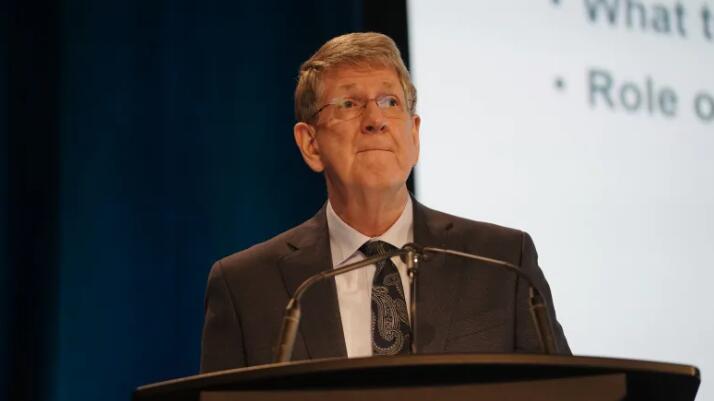Chair of N.S. shooting inquiry worries budget constraints could impede RCMP watchdog

Comments arose during a panel discussion of police accountability
The chairman of Nova Scotia’s mass shooting inquiry has raised concerns that budget constraints could tether
investigations by the watchdog agency that oversees complaints against the RCMP.
Michael MacDonald asked participants in an online roundtable discussion in Dartmouth, N.S., Wednesday whether funding concerns are a “blatant affront” to the independence of the Civilian Review and Complaints Commission for the RCMP.
While the oversight agency has the power to start its own inquiries, agency chairperson and panel member Michelaine Lahaie confirmed she must send a letter assuring the minister of Public Safety there are sufficient resources before opening a probe.
MacDonald asked if this raised the possibility “police misconduct can go unaccounted for, because there’s not enough money left in your budget,” and then he added this “sounds a little concerning to me.”
Lahaie says ensuring enough funding “is an issue of concern,” and it’s something she’s also spoken about at the parliamentary committee that oversees public safety and national security.
- RCMP has a history of failing to follow outside advice after deadly events
The online panel discussion on police accountability is part of the inquiry’s look into how to improve policing after a mass shooting that saw 22 people killed by a gunman driving a replica patrol vehicle on April 18-19, 2020.
Lahaie said her agency mainly handles civilian-initiated complaints, but it also has the power to start its own investigations and carry out reviews of systemic problems.

The agency can agree with the police findings about complaints, or produce an interim report with findings and recommendations, which is sent to the RCMP commissioner for a response.
- Nova Scotia’s mass shooting inquiry receives warning about ignored recommendations
Lahaie confirmed to the commission there’s currently no requirement that the RCMP tell her agency if its recommendations are carried out, adding “that is a failing in the system that we identified.”
However, she noted that legislative changes being contemplated by the government would require the RCMP to provide an annual report to the minister of Public Safety that would indicate the status of her agency’s recommendations.
Worries over this issue have also come up earlier in the inquiry, when RCMP Commissioner Brenda Lucki was asked on Aug. 25 why the police force hadn’t implemented recommendations from a Jan. 13, 2020, review by the complaints commission following the homicide of Colten Boushie, a Cree man who was shot and killed on a farm in Saskatchewan in 2016.
The 2020 review noted there was a delay before major crime investigators arrived at the scene. It specifically recommended that RCMP investigators attend crime scenes in a “timely fashion” in the future.
- Simmering rift between RCMP, municipal police, boils over in N.S. inquiry
Lucki was asked by a lawyer representing a victim’s family why this recommendation hadn’t filtered down to the Nova Scotia RCMP by the time of the mass shooting, when it took more than 18 hours for major crime investigators to visit the scene where Peter and Joy Bond were murdered in Portapique, N.S.
“Maybe we have a responsibility to be better at communicating these policies,” Lucki conceded in August.

Kent Roach, a University of Toronto law professor and author of a book calling for Canadian policing reform, said during the panel discussion that the RCMP Act may not give the federal minister enough power to direct the commissioner to carry out reforms.
Roach argues that for policy changes to take place, it will require “an active [federal] minister who is committed to seeing that the recommendations of the Mass Casualty Commission and other inquiries are implemented.”
- RCMP commissioner apologizes to families of victims in mass shooting
He also argues that these ministerial directives must be made public, to reduce the chance of political interference with the police force.
Roach told the inquiry that while “on paper” the RCMP appears to be answerable to advisory committees in rural areas of Nova Scotia, these bodies lack influence.
This report by The Canadian Press was first published Sept. 14, 2022.
Related News
Trump signs executive order to speed up deepsea mining permits
U.S. President Donald Trump on Thursday signed an executive order aimed at boosting the deepseaRead more
See the Ukraine war ceasefire proposals put forth by the Trump administration
Reuters has seen the text of a set of proposals to end Russia’s war inRead more
